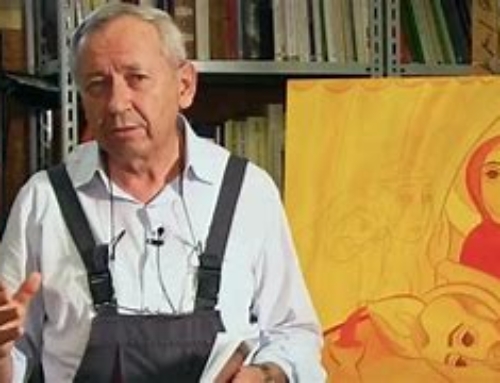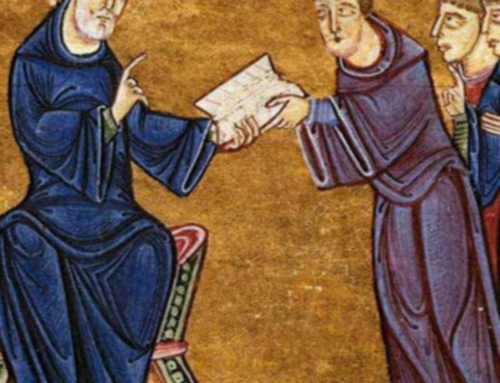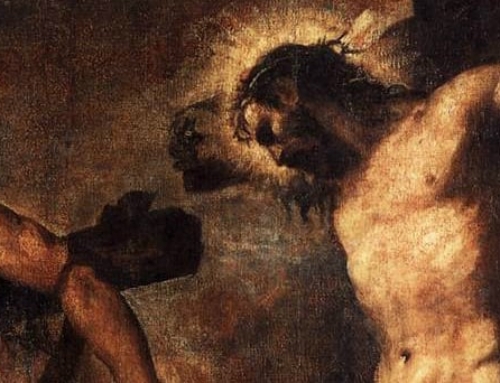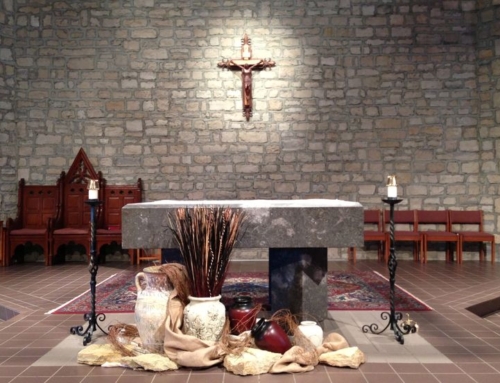We hear continual news reports that the Pentecostal Protestants in South America are stealing sheep from the Catholic fold at a record rate.
Why are they so successful? The reasons are not just theological, but social, economic and political.
- The Social – With the breakdown of the traditional parish and village and population shifts to the cities, the Pentecostal churches are good at providing local, low cost fellowship centers where people find community and find a church home.
- Economic – Pentecostalism is usually linked with an aspirational mentality. This is sometimes pooh-poohed as mere “Prosperity Gospel.” It can be that, but more often it is a sense of “Get Saved. Get Jesus. Get the Holy Spirit. Get a church family. Get a network. Get an education. Get a job. Get ahead. That’s attractive to poor people
- Scripture Centered – Protestantism is a religion of the word, not the sacrament. People thirst to know more of their faith and Bible-centered preaching and catechesis is attractive and accessible and practical.
- Gospel focussed – The Pentecostals have kept their eye on the ball and realize religion is about worshipping God and saving souls. That’s what they do. The rest are the sides.
- Supernaturally Centered – With their emphasis on the deliverance ministry, the power of the Holy Spirit and the gifts of the Spirit people feel they are immediately in touch with the power of God. Whether they are or not is not the point of this post, but this is what is felt, and they therefore this is “real religion” which unleashes the power of God in their lives. In contrast the routine sacraments of the Catholic Church seem stale and distant.
- Novelty – Pentecostalism attracts those who feel the Catholic Church is either irrelevant or which has abandoned them. It is something new, something exciting, and something which connects with their shift into the fast paced, modern world. It seems young, vibrant and dynamic.
- Egalitarian – Pentecostalism is the religion of the common man. The pastors are drawn from the people and speak to the people. There is little high level theological training and practically no top down hierarchy. It is a grass roots movement.
- No buildings – The Pentecostals are not wedded to expensive buildings and corporate structures and bureaucracies. They set up church in old stores, supermarkets and warehouses. This makes their ministry low cost, local and flexible.
- Speak to the Heart – Pentecostalism unashamedly appeals to the heart not the head.
- Small groups – Although the big Pentecostal churches seem mammoth, they very successfully minister to individuals and families through the cultivation of small groups within the larger structure. They also have teams of qualified ministers who may not be ordained, but who have authority to minister effectively
In contrast, consider the Catholic response to the same ten categories:
- Social – The Catholic Church is still too often wedded to a medieval model of parish which was based on an agrarian village in Europe in the Middle Ages. We have not been flexible and adaptable to the shifting society in our structures and are still trying to maintain a medieval model in a modern world. Furthermore, no one has really stopped to consider this question: is the traditional parish structure really what we need for today when people move and populations shift so rapidly?
- Economic – The Pentecostal model of economic improvement is essentially capitalistic inasmuch as it encourages self reliance, hard work and believes “getting ahead” is a good thing. The Catholic model is still wedded to a blend of medieval paternalism in which the “rich man in his castle looks after the poor man at his gate.” This has morphed into a left of center ideology which constantly criticizes capitalism, falsely idolizes poverty and enables the poor by demanding more and more handouts rather than a hand up. When are we going to learn that this economic model insults the poor and keeps them in their place? “You’re blessed when you’re poor”? the silent message is “So stay poor then.” Jesus said, “Blessed are the poor in spirit for theirs is the kingdom of heaven” This was a spiritual message–not an economic one.
- Scripture – I am still astonished at how little Catholics know and understand Sacred Scripture. Time and again I will have people be far more excited about the visions or inner locutions of some wild woman from Siberia or an eccentric visionary from Idaho than they are about the Word of God. No wonder Catholics scoot off to the Pentecostal churches where the living and powerful Word of God is preached and studied.
- Gospel – Let’s face it. Too much of the modern Catholic Church has taken their eye off the ball completely. We have forgotten that the whole purpose of the Church is to worship God and save souls. Instead we’ve put our social welfare systems, our politics, our parish fellowship events, our fund raising and just about everything else BUT the gospel in first place. This disastrous lack of proper priorities is like a hamburger joint manager being more concerned about clean bathrooms and parking lot lighting than he is with making good burgers and fries.
- Supernatural – It is fair enough that Catholics may not emphasize speaking in tongues, fainting in the Spirit, Holy Ghost healings and whatever else goes on in Pentecostalism, but why do you think so many Catholics are going for these things? Its because the supernatural aspect of our religion has been watered down, downplayed and often disbelieved and doubted. God pours his healing power and graces through our sacraments, but too many Catholics–priests included–do not understand how to experience and access this power for ordinary people in ordinary lives. Yes, of course I believe in ex opere operato the sacraments “work” even if we don’t feel it or experience it consciously, but this doesn’t mean we should not try to make the supernatural more vital in our lives. As a result Catholics experience the sacraments as an empty dull routine and drift away to a church that offers signs and wonders.
- Novelty – The Catholic faith is ever ancient ever new, but you try introducing a new idea to Catholics. Try thinking outside the box or introducing some novelty to worship or practice. We’re stuck in the mud.
- Egalitarian – All the Spirit of Vatican Two types think we are not clericalist anymore, and those are the priests (in my experience) who are most autocratic. The fact is we are still a highly clericalised church with dominant top down bureaucratic structures that sap our initiative, drain our funds, handcuff us with regulations, are dominated by insurance companies and “play it safe” financial advisors. Grass roots efforts are often squelched and parishes serve diocesan bureaucrats rather than the reverse. In the end this saps the power of the church to serve ordinary people.
- Buildings – We are tied to our properties. We are too often burdened with big old churches, schools, seminaries, convents, monasteries and rectories that drain our finances, are often outdated, in the wrong place, the wrong size and the wrong design. We have to balance the preservation of our heritage and the need for good buildings with the needs of mission.
- Heart not Head – We have the devotion to the Sacred Heart and the Divine Mercy and plenty of Catholic appeals to the emotional aspect of the human person, but too often we avoid that like the plague and resort to intellectualism or a dry sacraentalism
- We have natural small groups called parishes, but too often our parishes are becoming larger and larger and we are not effective in ministering to individuals and families. We have too few ministers who are poorly paid and ordination is still seen as the only valid form for being a minister.
Does this mean I think we should mimic the Pentecostals? No. This is exactly the wrong tactic. For the last fifty years we have been trying to mimic the Protestants with disastrous results. We have de-sacralized our buildings, destroyed our art, dumbed down our liturgy, imposed banal and idiotic music and replaced worship with fellowship.
The Protestants do Protestant real well. Let them do it.
We don’t need to be less Catholic we need to be more Catholic. In other words, we need to recover the original missionary spirit of the Jesuits. This is one of the good contributions Pope Francis has made–reminding us to get out among the people to spread the gospel. We need to keep our eye on the ball and work hard to re-invigorate proper, reverent Catholic worship and devotional life. We need to study the Scriptures for their life changing effect and not just mine them for saccharine sermon illustrations. We need to, most of all, remember that the Catholic Church is in existence to foster the best worship of God combined with the preaching of the gospel of Jesus Christ and the administration of his sacraments for the salvation of souls and the glory of God.







[…] Thing ‘Radioromalibera’: First Italian Catholic Online Radio Launches – F. Romana, RCæli Ten Reasons Why the Pentecostals Are Whooping the Catholics – Fr. Dwi. Longenecker Cardinal Delivers Chinese Underground Church Letter to […]
[…] Ten Reasons Why the Pentecostals Are Whooping the Catholics – Fr. Dwi. Longenecker President Oprah & the False Religion of ‘A Wrinkle in Time’ – Derya Little, NC Register Pope Francis, a Crossroads & a Dilemma – Andrea Gagliarducci, Monday Vatican The Moral Crisis of Our Time – Deacon James H. Toner Ph.D., The Catholic Thing What is Septuagesima? – Fr. John Zuhlsdorf, Catholic Herald Fr. Murray Looks Again at Marriage Issued by the Bishops of Kazakhstan – Fr. Z’s Blog Getting Your Online Presence Right – Brice Sokolowski, CatholicFundraiser.net Fat Bombs & God – James Hooper, Catholic Stand Maltese, Germans, Argentinians & Braga; Patently & Gravely Wrong-Ed Peters – Fr. Z Archbishop to Trudeau: You’re Confused If You’re Pro-Abortion & Catholic – Chretien Secularist Faith vs. Christianity: Culture Wars Are a Battle of Religions – T Gilson, Strm Cardinal Delivers Chinese Underground Church Letter to Pope – Duncan DeAeth, TN Christian Gymnast Forgives Larry Nassar for Sexual Abuse – Katie Yoder, LifeNews.com China Talks: Vatican Too Willing to Sacrifice Principles & the Faithful – Phil Lawler, CC The Church Must Combat Euthanasia Mentality, Pope Says – Hannah Brockhaus, CNA ‘Radioromalibera’: First Italian Catholic Online Radio Launches – F. Romana, RCæli […]
Maybe you should include South American Jesuits in the second list. Or am I being too cynical or out of date?
This article feels like there needs to be a part II to fully complete it. What and how do we bring them back?
[…] Ten Reasons Why the Pentecostals Are Whooping the Catholics […]